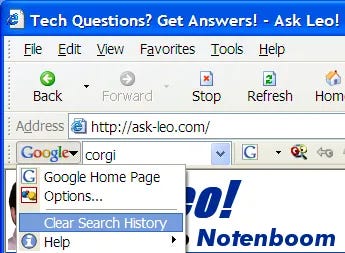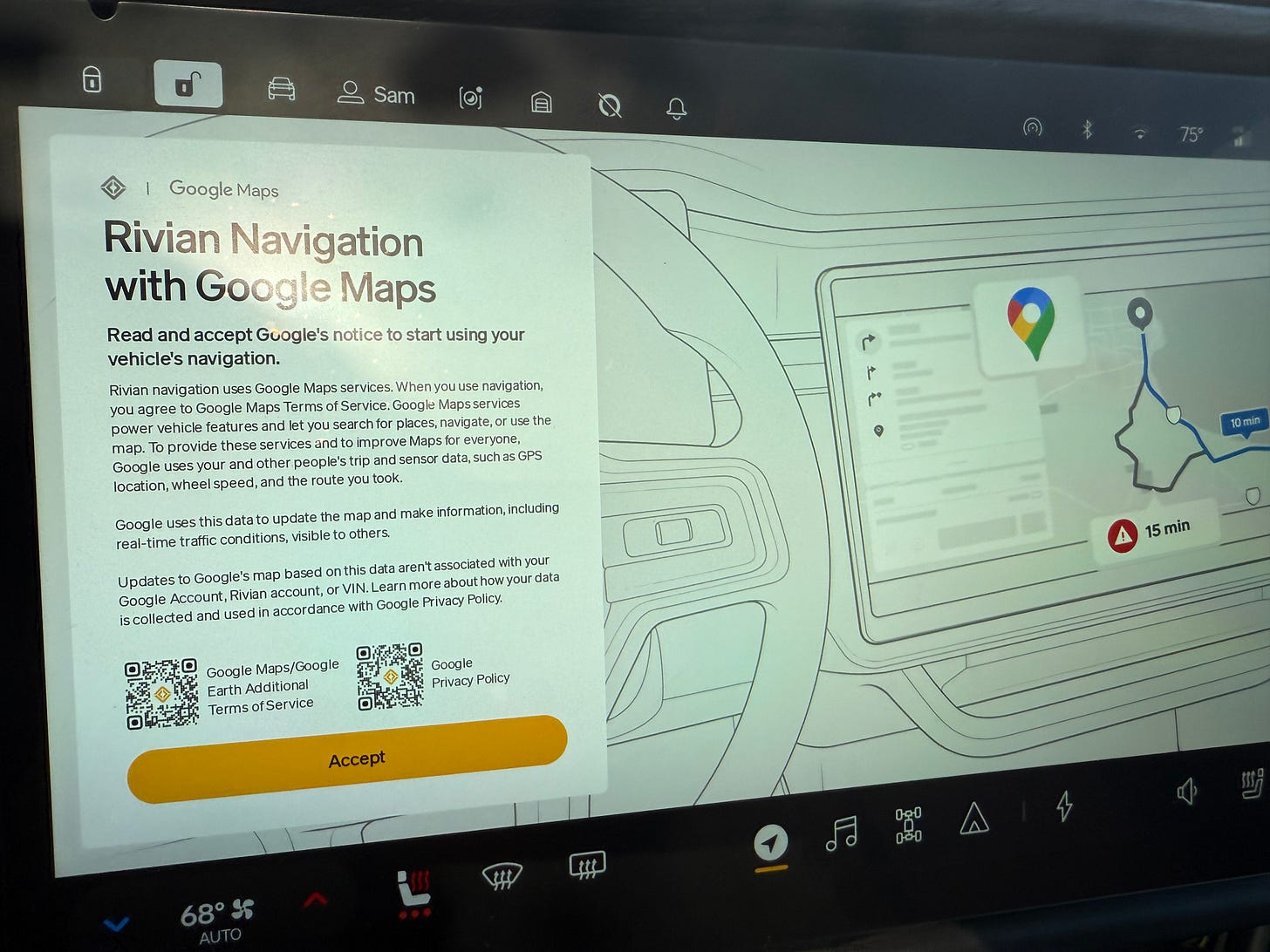Why does privacy matter?
How Big Tech slowly convinced us privacy doesn’t matter—and why it’s time to jump out of the pot.
Big Tech wants you to believe privacy isn’t necessary. That if you have nothing to hide, you have nothing to worry about. They know that the less you value your data, the more power they have over you.
So why is data privacy so important? Why does being technonymous matter? If I have no secrets, why should I care what Facebook knows about me?
Think about the worst relationship you’ve ever seen—or maybe been in. The kind where your partner says things like, “You don’t know how good you have it,” or “You’ll never do any better than me.” That’s the dynamic we’ve fallen into with Big Tech. They’ve convinced us that if we disconnect—even for a moment—we’ll miss out, fall behind, lose touch. Deep down we fear they might be right.
But here’s the truth: they’re not nurturing us, they’re exploiting us.

It’s hard to convince a frog that it’s being boiled while the water warms slowly. That’s the trap we’re in with Big Tech. A decade ago, these platforms felt harmless—even helpful. Now they shape our moods, our conversations, our politics, and our identities in ways that are almost invisible because they crept in gradually. Privacy isn’t some abstract concern; it’s the difference between choosing who you become and being nudged into who they need you to be.
That’s why privacy matters. It’s the boundary line between being a person and being a product. In this post, I’ll share the reasons that resonate most with me—and if you want to dig deeper, I’ll also point you to resources at the end.
Protecting your online privacy is the first line of defense in protecting yourself from being manipulated.
Ad dollars are what drive the "free" internet. Meta and Google both make nearly a billion dollars a day from selling ads. Ad dollars account for 98% of Meta's revenue, and 76% of Google's revenue.
And, like any good company, they are constantly trying to increase this number. How can they do that? They have two levers to pull:
Get you to spend more time on their platforms
Make the time that you spend on their platform more valuable
Let's go back in time. Google was the original innovator here. They realized that each search you made gave them surface area to sell ads, so they needed you to make as many searches as possible. Their first breakthrough here was the Google Toolbar.
There's a fantastic episode of the Acquired podcast that goes in depth on this.
As we move through time, there are a series of moves designed to provide you with free things in order to both harvest more data to make you a more valuable commodity for them to sell and to capture more of your time so that they have more space to advertise to you:
Gmail is the ultimate trojan horse.
Like any toxic partner, Google made itself indispensable. First with Gmail, then with Maps, then with Chrome—every gift came with strings attached. The more we relied on them, the harder it became to imagine life without them.
Gmail solved the biggest problem that Google had-- their ability to profile you across devices was limited because you had no incentive to log in to a Google account. So, Gmail was developed and pushed to users in order to get you to log in. But they quickly realized that it was more than this-- they could also scan your email to build a richer profile of you-- demographics, spending profile, lifestyle signals. Now, thanks to your unified account across devices, this information is crossed with your search history, YouTube history, mapping history, browsing history. And, when the opportunity is to make thousands of dollars selling ads EVERY SECOND, they're able to hire the best engineers in the world to put all of this information together to assemble a startlingly accurate picture of you to sell to advertisers who can manipulate your psychology to get you to buy more.
This data drives revenue, which enables product development to create greater and greater lock in to their ecosystem. By building really good products, they are able to create greater and greater surface area for data collection. It's an accelerating cycle.
Last month, I got into my car and was informed that I could no longer use the navigation in my car without agreeing to Google's privacy policy. And while they are clear that my in-car navigation isn't explicitly tied to my individual Google account, it's still another way to improve their targeting abilities. More data into the pot.
Chrome was an equally valuable tool for Google. It both kept them from paying out the billions of dollars every year that go to other browsers in exchange for allowing you to search on Google directly from the address bar and allowed them to capture all of your browsing data.
This is just scratching the surface of Google's model. Understand your intent, your proclivities, your profile and sell that information to the supplier willing to pay most for it.
The social media model
While similar, Meta (and all of social media) has a slightly different model: maximize your time on their platform in order to show you as many ads as possible. They do this by identifying and promoting the content that we're most likely to engage with. Often, this is "rage bait"-- and while the goal is to increase time-on-site, the side effect is our further entrenchment into our echo chambers. Political differences become flashpoints. Us-vs-them mentalities flourish.
It’s the same tactic as a manipulative partner who picks fights just to keep you engaged. Outrage keeps us coming back, even when we know it’s bad for us.
What does this have to do with privacy? Everything. The more time we spend on social platforms, the more data we generate—every click, pause, post, comment, and reaction is logged. That behavioral exhaust is what allows Meta to build intimate psychological profiles of us, not just to show ads, but to predict and influence what we’ll do next. Social media addiction isn’t just about wasted hours; it’s about surrendering the raw material of our inner lives to companies whose business model depends on knowing us better than we know ourselves.
It all comes down to autonomy.
Privacy is autonomy’s front line. Give it up, and you hand over the steering wheel of your own life.
In her 2019 book, The Age of Surveillance Capitalism, Shoshana Zuboff makes that case that privacy is the boundary of human autonomy. When we give up our privacy, we lose our ability to decide for ourselves who we are, what we think, and how we act. We outsource the things that make us most human to big tech and their advertisers.
Zubhoff posits that without privacy, there is no self-determination.
Without privacy, autonomy collapses (you lose the ability to define yourself).
Without privacy, democracy collapses (you lose freedom from manipulation).
Without privacy, capitalism mutates into exploitation (you become raw material).
Without privacy, dignity collapses (you’re treated as an object, not a subject).
Without privacy, power asymmetry hardens (corporations gain irreversible control).
A toxic relationship works by convincing you that you can’t trust yourself—that you need them to define your reality. Surveillance capitalism plays the same trick. Without privacy, we lose the boundary that lets us decide who we are on our own terms.
We don’t have to stay trapped in this relationship. The first step is recognizing the manipulation for what it is. Next week, I’ll explore the practical side—what it looks like to start setting boundaries and reclaiming your privacy.
Before we get there, I want to plead with you to pause and actually examine the effect of social media on your own life. How do you feel about people who disagree with you politically? How do you feel about culture as a whole? Be honest. If you find yourself angrier, more cynical, or more tribal than you used to be, that’s not just “the way the world is.” You’ve been shaped—molded by trillion-dollar companies into a caricature of yourself because it makes them more money. Like the frog in the pot, we don’t notice the heat until the water is boiling.



